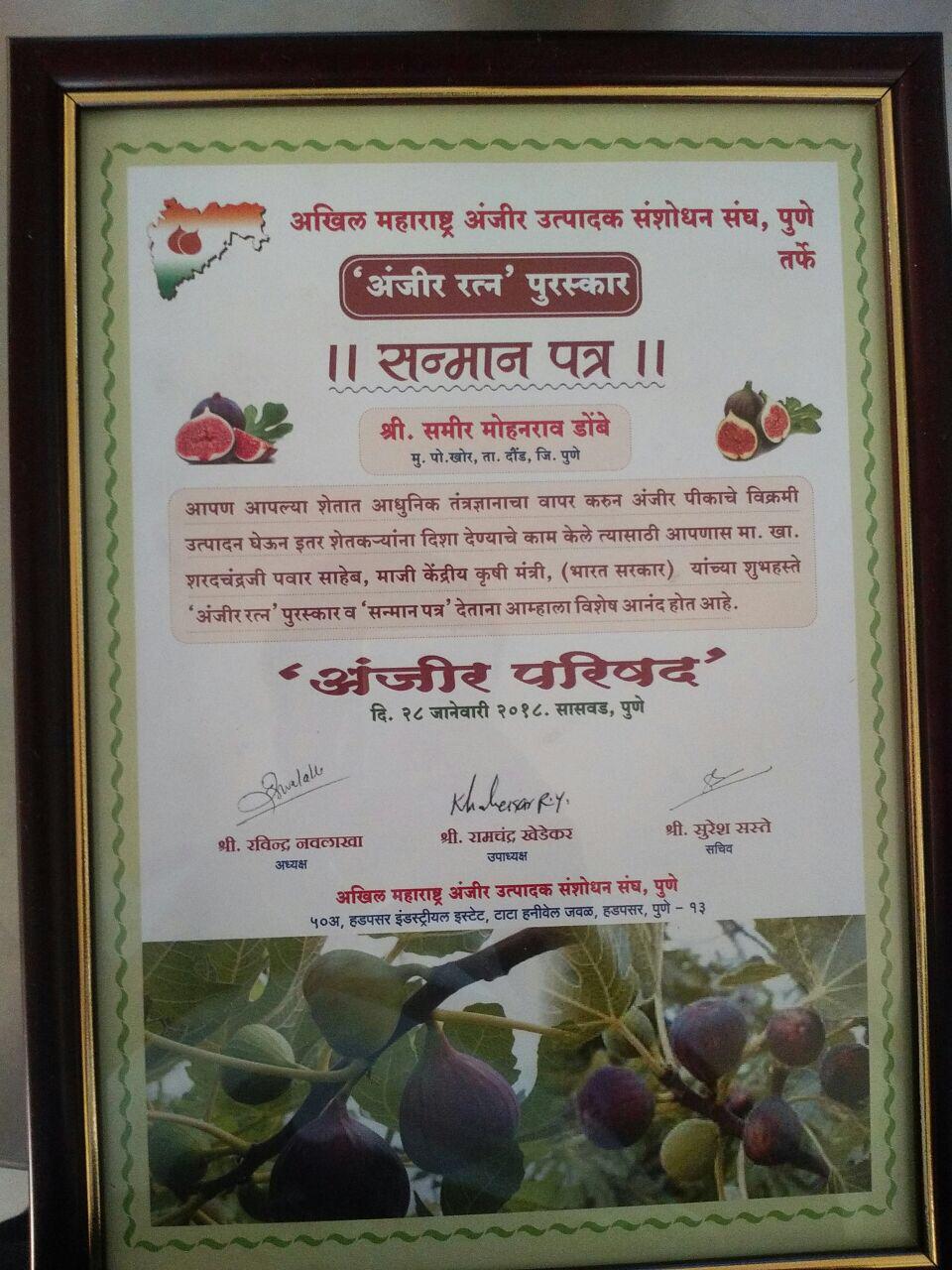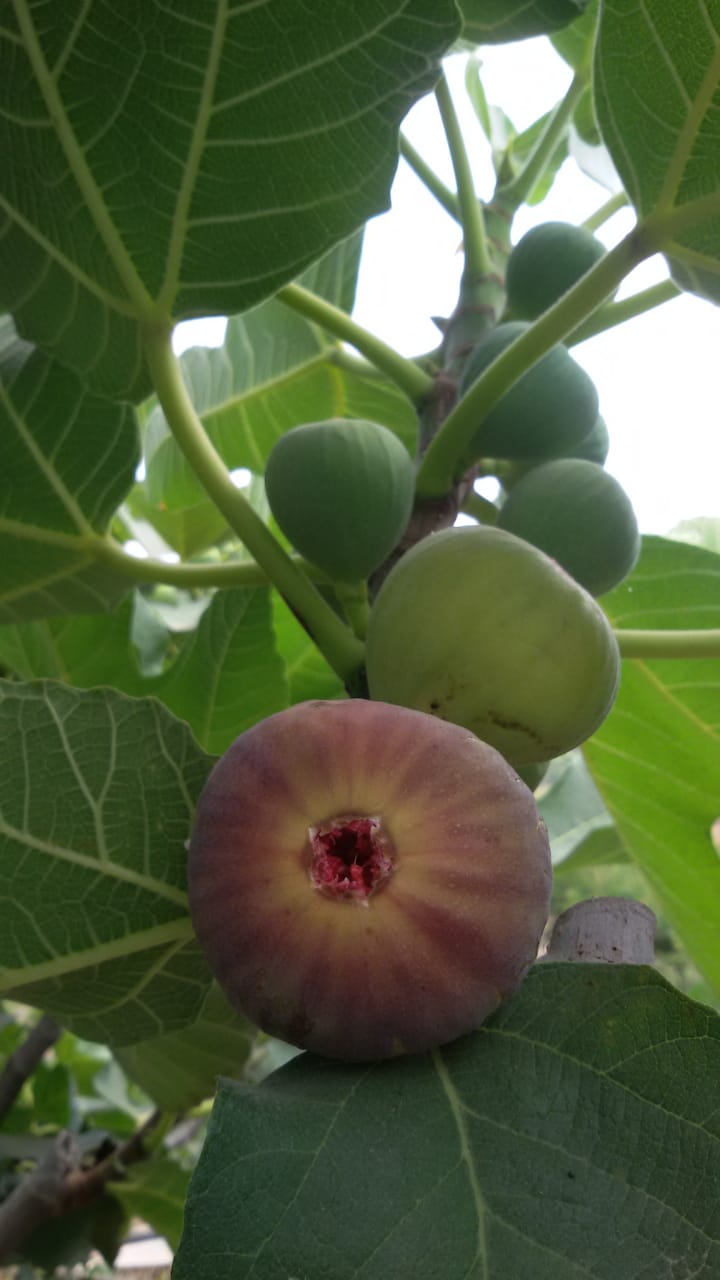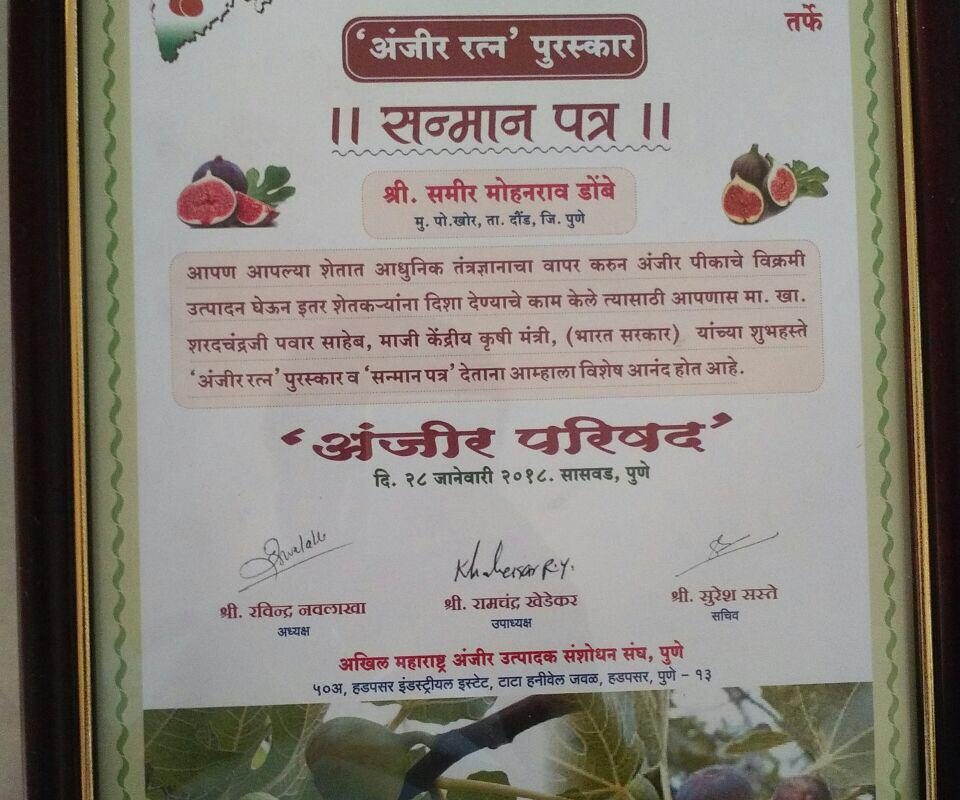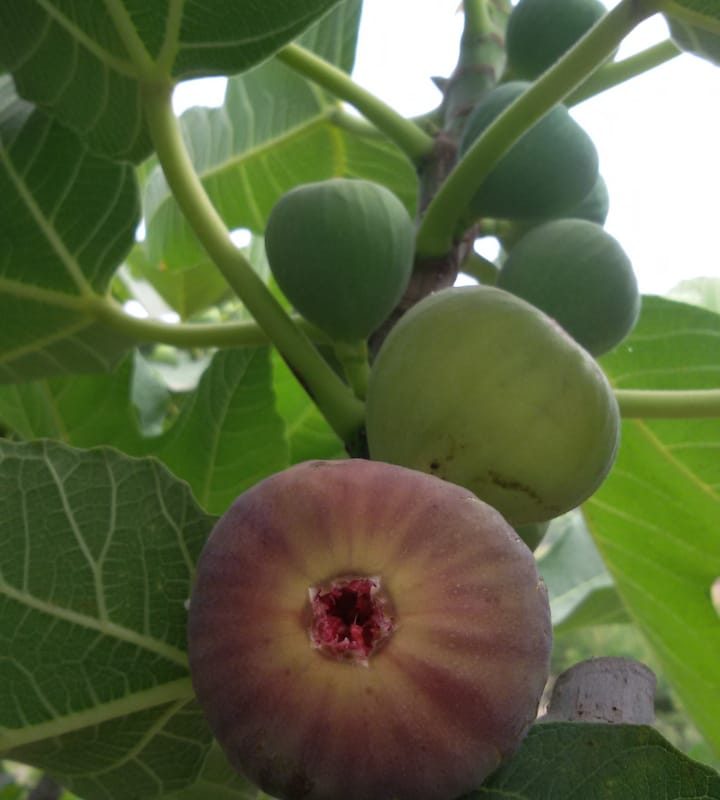Pavitrak Figs and Jam – All Organic Must Try Products
by Prashant Kapadia/NHN
 In 2013, Samir Dombe decided to quit his corporate job and take up agriculture in his hometown. A native of Daund, which is located around 90 km from Pune, Maharashtra, he was working in an engineering solutions company and used to earn Rs 40,000 a month.
In 2013, Samir Dombe decided to quit his corporate job and take up agriculture in his hometown. A native of Daund, which is located around 90 km from Pune, Maharashtra, he was working in an engineering solutions company and used to earn Rs 40,000 a month.
However, after 1.5 years of work, he realised hectic travel and constant changes in work pressure were not worth the money. He then decided to cultivate figs, which is a tradition his family has been involved in for two generations now.
“Not a single person in my family, or even my friends, supported my decision,” says Samir. “
He adds that the strong opposition to his decision was due to the uncertainty in the agriculture sector.
“There are no irrigation facilities in Daund, and agriculture depends on monsoon rains, which are entirely at the mercy of the rain gods,” he says.
Samir’s parents felt it would be difficult to find a match for their farmer son, who is in his 20s, as they believed preference would be given to salaried professionals. “Everyone was sure I would not survive in the agriculture ecosystem,” he adds.
Creating a brand for supermarkets.High quality figs are popular among customers.
 Samir had a few ideas in mind. Growing up in a farmer family, he knew techniques of agriculture and continued farming on the 2.5 acres of land. However, instead of selling the figs directly in the market, he started packaging them into 1 kg boxes, and approached different market segments.
Samir had a few ideas in mind. Growing up in a farmer family, he knew techniques of agriculture and continued farming on the 2.5 acres of land. However, instead of selling the figs directly in the market, he started packaging them into 1 kg boxes, and approached different market segments.
“Looking at the smaller boxes, a friend suggested I approach the supermarkets,” he says. “The deal was signed with one, and following good response, I started selling figs under the name ‘Pavitrak’ in three other supermarkets.”
The produce also started reaching Pune, Mumbai, Bengaluru and Delhi.
“The packaging mentioned the phone number and address of the company,” Samir said .
“Customers who loved the product started approaching us directly. They created small groups to coordinate and made bulk orders.” He adds that it was not just about targeting the buyer differently – it also helped him earn more profits.
With no pollution and surrounded by hilly area, figs have best conditions to grow.
 “Figs are rich in nutrients, but grow selectively depending on geographic conditions. Daund is ideal for the fruit, because it is hilly, water gets percolated easily, and the area has medium levels of evaporation. The farm is away from pollution, as the highway is about 10 km away, and there is access to clean water,” Samir says.
“Figs are rich in nutrients, but grow selectively depending on geographic conditions. Daund is ideal for the fruit, because it is hilly, water gets percolated easily, and the area has medium levels of evaporation. The farm is away from pollution, as the highway is about 10 km away, and there is access to clean water,” Samir says.
The ideal weather conditions made the product of high quality, which was preferred by consumers. Besides, there was no availability of the fruit on a large scale in the market. “I happened to fill the gap at the right time, which is the most important aspect of marketing,” he says.
Eventually, he increased his farm size from 2.5 acres to 5 acres and established food processing units to make jam, pulp, and other products from figs.
Samir says his direct connection with consumers helped his business survive during the Covid-19 lockdown. “I reached out to many customers who shared feedback and approached directly. We started taking direct orders on WhatsApp, and sold the produce even when supermarkets did not accept our fruit,” he says. He earned around Rs 13 lakh during the lockdown.
More educated farmers needed
Fig jams are sold under the name Pavitrak.Pavitrak Fig Jam is a All-natural, delicious, nutrient-rich Jam containing 85% real fruit pulp prepared from naturally grown and freshly harvested fig from our own farm that will delight consumer by providing great taste, good value and real nutrient.
 Having worked in agriculture for seven years, Samir has a message for all farmers’ sons. “For over two generations now, children of farmers have studied and taken jobs in the private sector to earn a stable and lucrative income. The move has created a huge gap in the farming sector,” he says.
Having worked in agriculture for seven years, Samir has a message for all farmers’ sons. “For over two generations now, children of farmers have studied and taken jobs in the private sector to earn a stable and lucrative income. The move has created a huge gap in the farming sector,” he says.
He adds that agriculture largely remains an unorganised market that needs to be more streamlined. “Children of farmers became literate and earned profits for corporates. But no educated individual has returned to farming and put their education to use for its betterment. The scenario needs to change,” he says.
The agri-entrepreneur says there’s no point in just criticising the government. “We have to market our farm produce and brand it like corporate markets, have creative taglines, and emphasis on nutrition value. That’s how farmers will progress,” he says.
Rohan Ursal, a member of the Fig Growers’ Association, says figs are in good demand. “Good quality fruit sells at Rs 80 to Rs 100 per kg. Innovating marketing channels and trying new methods can certainly help farmers make good profits by establishing last-mile logistics,” he adds.
Previous Article




